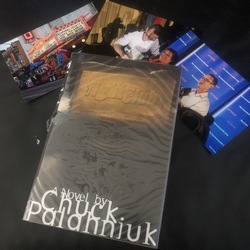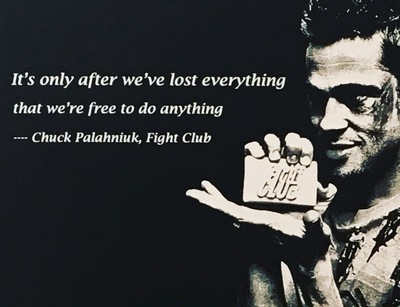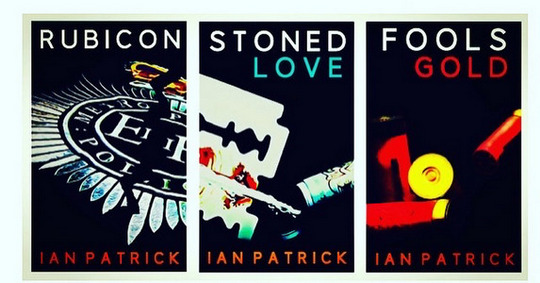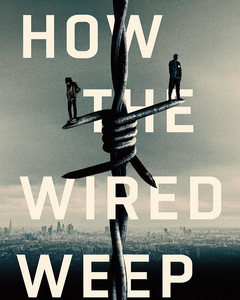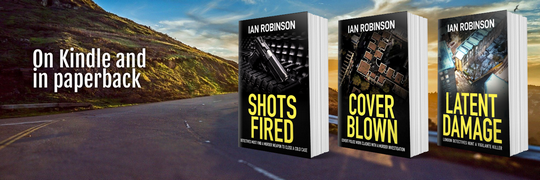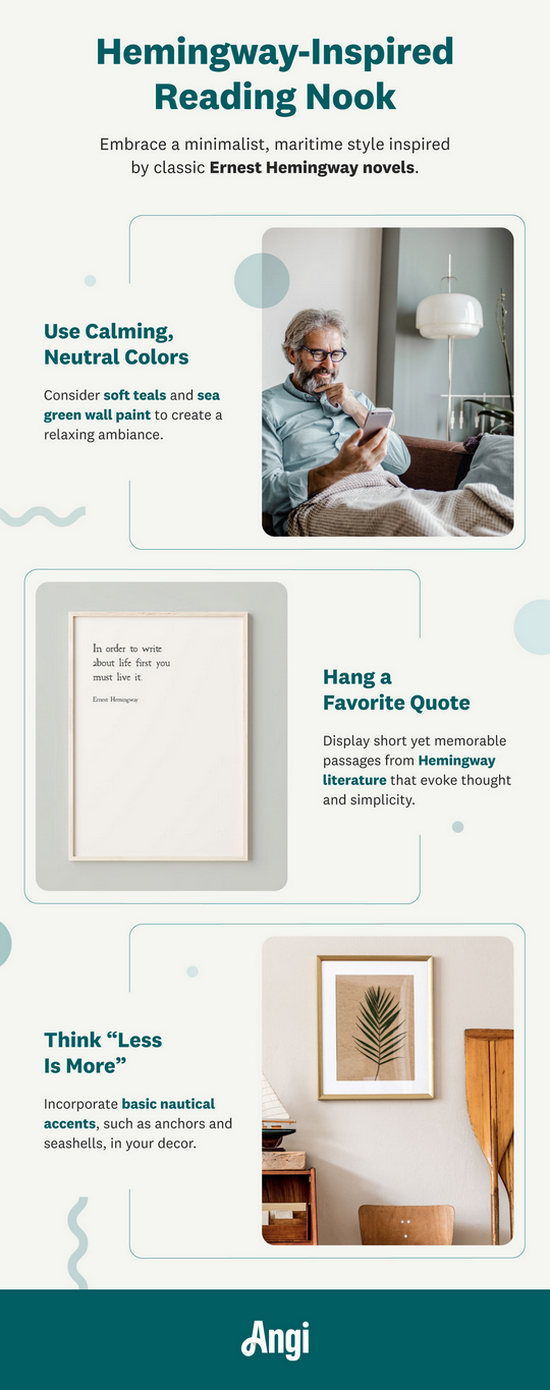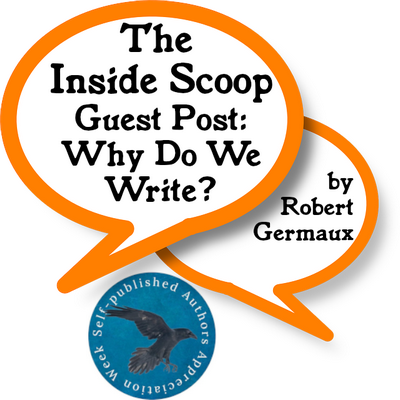 Robert Germaux has always been game for anything I’ve asked him if he wanted to do–which is great, because I’ve always appreciated whatever he produces. Better than the things he’s done with me are the books that he’s provided for me and/or I’ve purchased. Like this post, for example, which is a revised version of something that appeared in one of his books and on this site a few years ago. He’ll be back for the Self-Publishing Q&A here in a few.
Robert Germaux has always been game for anything I’ve asked him if he wanted to do–which is great, because I’ve always appreciated whatever he produces. Better than the things he’s done with me are the books that he’s provided for me and/or I’ve purchased. Like this post, for example, which is a revised version of something that appeared in one of his books and on this site a few years ago. He’ll be back for the Self-Publishing Q&A here in a few.
In 1855, the difficulty of writing was described by some long-forgotten wit who said that words came from an author “drop by drop.” Jump ahead to 1949, when Pulitzer Prize winning sportswriter Red Smith, when asked if writing a daily column was hard, replied, “Why, no. You simply sit down at the typewriter, open your veins, and bleed.”
There are numerous other versions of the “open your veins and bleed” school of writing that have been ascribed to many people, including Ernest Hemingway. Unfortunately, there is no real evidence that Hemingway ever actually said anything along those lines, so I guess I’m not going to be able to sneak a good Papa reference into this essay. Another time, perhaps.
Getting back to the topic du jour, why do so many writers describe their craft in such disparaging terms? Apparently, a lot of us love the finished product but maybe not so much the process of getting there. Dorothy Parker, a founding member of the famed Algonquin Round Table, evidently was speaking for a good many writers when she said, “I hate writing. I love having written.”
While researching this piece, I had no trouble finding quotes about writers who claim to hate writing, but the reverse was definitely more difficult. Certainly, you can find people who say they enjoy writing, but they appear to be a distinct minority. For every author who said he or she loved writing, I found at least five or six who fell into the “tortured writer” category, which I have to admit came as a surprise. I mean, I don’t know about you, but if I was voluntarily engaging in an activity that I believed could in any way be compared to torture, I’d put an end to my participation in that activity right quick.
So, again, why do we write? Personally, I didn’t begin writing until I’d retired after three decades of teaching high school English, and it wasn’t until a good many years (and a bunch of books) later that I felt comfortable telling people I was a writer, as opposed to a retired teacher. Why do I write? Well, I can assure you it’s not for the money. At this moment, I have five books on Amazon: three mysteries, one love story (The Backup Husband) and a collection of humorous essays called Grammar Sex (and other stuff). My books sell for $2.99, which means my cut is a hefty $2.05 for every sale. So that recent vacation my wife and I took to Bermuda was courtesy of our teacher pensions and social security, not the man of the house’s book royalties.
I don’t hate writing. I wouldn’t keep doing it if I did (see previous reference: torture). Is writing hard for me sometimes? Of course, just as I’m sure it is for you. If I’m smack in the middle of one of my detective novels, do I enjoy waking up at 2:00 am and furiously scribbling down notes about scenes or dialogues I just found racing through my mind? Not really, but when I put those notes together the next day in another chapter of my book, it makes losing a bit of sleep the night before not so bad. If you’ve had similar experiences, you know what I mean. We just have to get those thoughts down. We just have to write.
To some degree, I think most writers are perfectionists, which explains Oscar Wilde’s quote about spending “all morning putting in a comma . . . and all afternoon taking it out.” Okay, that’s a little extreme, but you get the idea. My point here is that, as perfectionists, we like to be able to make sure that things work out the way we want them to, and creating our own little worlds is a great way to do just that.
One more note, this one maybe not so obvious. In fact, there’s a bit of irony involved. Writing is among the most solitary of professions, yet its end result is to link us to others (many others, we hope). That simple act of sitting down in front of your computer or laptop (or, in my case, at my kitchen table with a yellow legal pad and my Pilot Precise V5 extra fine point pen) allows us to make a connection with the rest of the world. And I think in the end, for me at least, that connection is both reason and reward for why I write.
I hope you’re in that minority of writers who not only have to write, but also actually like what you do. My experience has been that, unfortunately, most people don’t really enjoy their work. If you’re a writer, you’re already in a select group of people with skills that appear to be rapidly diminishing in our society. So take advantage of your talent. Have fun with it. Use it to form those connections with others. It may be frustrating at times (especially in the middle of the night when you turn on the light and awaken your ever-understanding and supportive spouse because you just figured out whodunit), but trust me, you’ll feel much better the next day when you write that final chapter in your latest masterpiece.
About the Author
Since penning this piece a few years ago, Robert Germaux has heeded his own advice and continued writing at that kitchen table. He is currently working on his 13th book. You can find more information about Bob and his books at his Amazon Author Page.
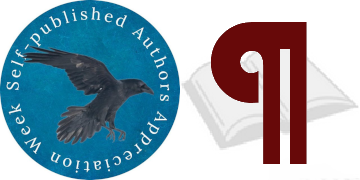
The 2023 Self-Published Authors Appreciation Week Logo was made by Witty and Sarcastic Book Club


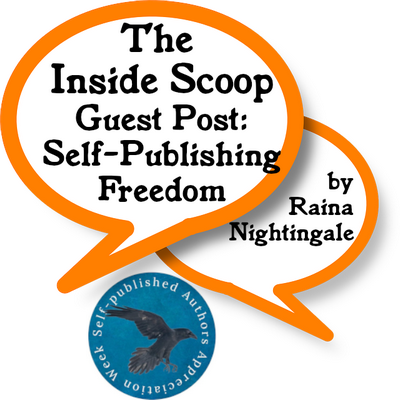 One of the first things that Raina Nightingale said to me was that she wanted to do a Guest Post about the freedom of self-publishing. This sounded perfect to me, that freedom is one of those things that defines self-publishing to me. I’ll be posting the Self-Publishing Q&A with Nightengale a little later this morning, be sure to come back for that.
One of the first things that Raina Nightingale said to me was that she wanted to do a Guest Post about the freedom of self-publishing. This sounded perfect to me, that freedom is one of those things that defines self-publishing to me. I’ll be posting the Self-Publishing Q&A with Nightengale a little later this morning, be sure to come back for that..jpg)

